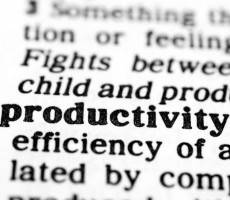July 26, 2016
Majority of employees think screening Olympics will boost productivity 0
 Screening sporting events in the workplace may increase productivity, according to research released by employment law specialist Peninsula. In a survey of 894 employees across the UK, 64 percent reported being more productive as being allowed to watch sporting events at work. The survey, which claims to examine how businesses managed employees during the first half of the summer of sports also revealed that 46 percent of employees want clearer policies regarding watching sporting events at work. This related to the fact that employers only showed certain games during Euro2016 and didn’t show any of the Wimbledon tournament. 51 percent of respondents also called for employers to be more flexible during major sporting games allowing them to start late, leave early or swap with colleagues. 24 percent said that a lack of flexibility would encourage their decision to call in sick in order to watch their favourite sporting event.
Screening sporting events in the workplace may increase productivity, according to research released by employment law specialist Peninsula. In a survey of 894 employees across the UK, 64 percent reported being more productive as being allowed to watch sporting events at work. The survey, which claims to examine how businesses managed employees during the first half of the summer of sports also revealed that 46 percent of employees want clearer policies regarding watching sporting events at work. This related to the fact that employers only showed certain games during Euro2016 and didn’t show any of the Wimbledon tournament. 51 percent of respondents also called for employers to be more flexible during major sporting games allowing them to start late, leave early or swap with colleagues. 24 percent said that a lack of flexibility would encourage their decision to call in sick in order to watch their favourite sporting event.































June 14, 2016
What does Stephen Hawking have to do with office productivity? 0
by Darren Bilsborough • Comment, Facilities management, Workplace, Workplace design
(more…)